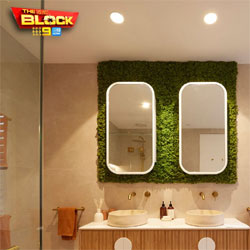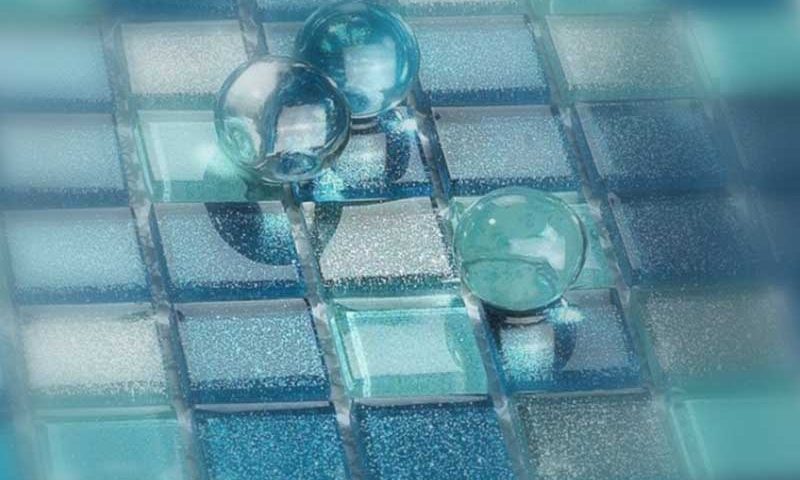Glass tiles are becoming increasingly popular for use in kitchens and bathrooms due to their unique properties. Despite only accounting for 5% of the total market share for finishing materials, glass tiles offer many advantages that make them an attractive choice for interior design.
Glass tiles benefits
One of the main benefits of glass tiles is their ability to reflect light, with an index of about 92%. This feature not only makes rooms brighter but also gives the illusion of more space, making them ideal for small bathrooms and kitchens. Glass tiles are also highly resistant to external influences, including humidity and chemicals, making them durable and long-lasting. Additionally, they do not fade over time, ensuring their aesthetic appeal is maintained.
The attractive sheen of glass tiles is another desirable characteristic that adds to the visual appeal of any room. With a wide range of colours and shapes available, designers can explore different design ideas to achieve their desired look. Furthermore, glass tiles are easy to clean and maintain, requiring no special skills or detergents.
Another important advantage of glass tiles is their safety. Even when broken, they do not have sharp edges, reducing the risk of injuries, wounds, and bruises. Glass tiles are also slip-resistant, making them an excellent choice for flooring in areas where slipping and falling are common, such as bathrooms and kitchens.
Glass tiles can be used to add partial decoration to certain areas of a room, such as near a washbasin. One popular application of glass tiles is in the bathroom, where they can be used to create exclusive finishes. Combining small decors and mosaics with tiles can result in original and modern compositions. Glass mosaic tiles come in a variety of finishes, including glossy and matt options, as well as those with pearl or gold elements and shiny surfaces. They are particularly suitable for surfaces that are regularly exposed to water and detergents, such as those found in bathrooms. Glass tiles not only fulfill their function in such environments but also visually enlarge and illuminate the room.
Glass tiles disadvantages
Despite their many benefits, there have been misconceptions about the durability of glass tiles. Many designers have been wary of using them in the past due to concerns about their usability, and some homeowners have believed that they deteriorate quickly when exposed to chemicals. However, subsequent practice has shown that glass tiles can be just as effective as traditional ceramic tiles when used as a cladding material.
Glass tiles are prone to scratching and can be damaged by abrasive cleaners or materials. Scratches can dull the appearance of the glass and make it look worn and damaged over time.
Glass tiles require a skilled professional tiler for installation. Unlike other tile materials, glass tiles cannot be cut with standard tile cutting tools and require special techniques and equipment. This can add to the cost of installation and make it more difficult to find a qualified installer.
Glass tiles require regular maintenance to keep them looking their best. They are prone to staining and require regular cleaning with mild cleaners and soft cloths. Harsh chemicals or abrasive materials can damage the glass and cause it to lose its luster.
However, it is important to note that glass tiles may not be as resistant to heavy impacts and mechanical damage as other materials. Therefore, it is advisable to choose a material with a sturdy frame designed to prevent chipping and cracking when using glass tiles for flooring in high-traffic areas.
Overall, glass tiles are a beautiful and unique option for tiling projects, but they do come with some disadvantages. It’s important to carefully consider these drawbacks before making a decision to use glass tiles and to work with a qualified professional for installation and maintenance.


